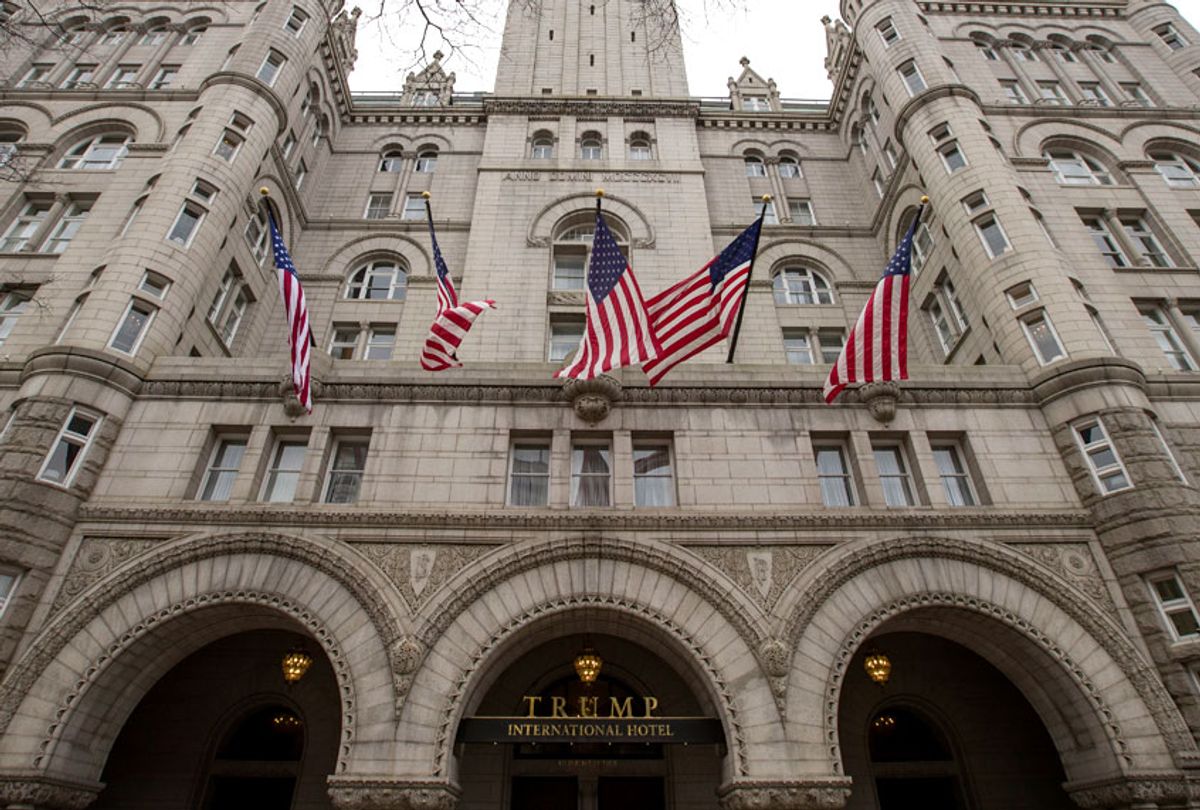The emoluments clause of the United States Constitution forbids presidents and other federal officials from accepting gifts from foreign governments without Congress’ permission. The idea behind the clause is that if they accept gifts from foreign powers, it could influence them from a policy standpoint. But according to a forthcoming article in the Indiana Law Journal, recent filings by the U.S. Justice Department have found an exemption to the emoluments clause that benefits President Donald Trump.
The Trump Organization has had business activities in different countries, from Saudi Arabia to Scotland to Russia (where a Trump Tower Moscow project was abandoned in 2016). And the Trump Organization’s foreign activities have attracted the attention of everyone from members of Congress to New York State Attorney General Letitia James, who has said she wants investigate the president and his business for possible violations of the emoluments clause. But Kathleen Clark, a law professor at Washington University, says in a forthcoming Indiana Law Journal article that U.S. Justice Department rulings since June 2017 show a narrower interpretation of the emoluments clause than in the past.
Clark writes that Trump-era Justice Department filings “would permit the president — and all federal officials — to accept unlimited amounts of money from foreign governments as long as the money comes through commercial transactions with an entity owned by the federal official.”
Sheri Dillon, an attorney for the Trump Organization, addressed this subject in January 2017 — the month in which Trump was sworn in as president. That month, Dillon and her colleagues asserted in a position paper that Trump wasn’t accepting any payments in his “official capacity” as president, and that all of the payments he was receiving were related only to his private business and not his government-related activities.
“Paying for a hotel room is not a gift or a present, and it has nothing to do with an office,” Dillon wrote. But Clark stressed that Dillon’s view is a departure from what legal experts said in the past.
Clark told the Guardian, “For over 100 years, the Justice Department has strictly interpreted the Constitution’s anti-corruption emoluments clause to prohibit federal officials from accepting anything of value from foreign governments, absent congressional consent.”




Shares